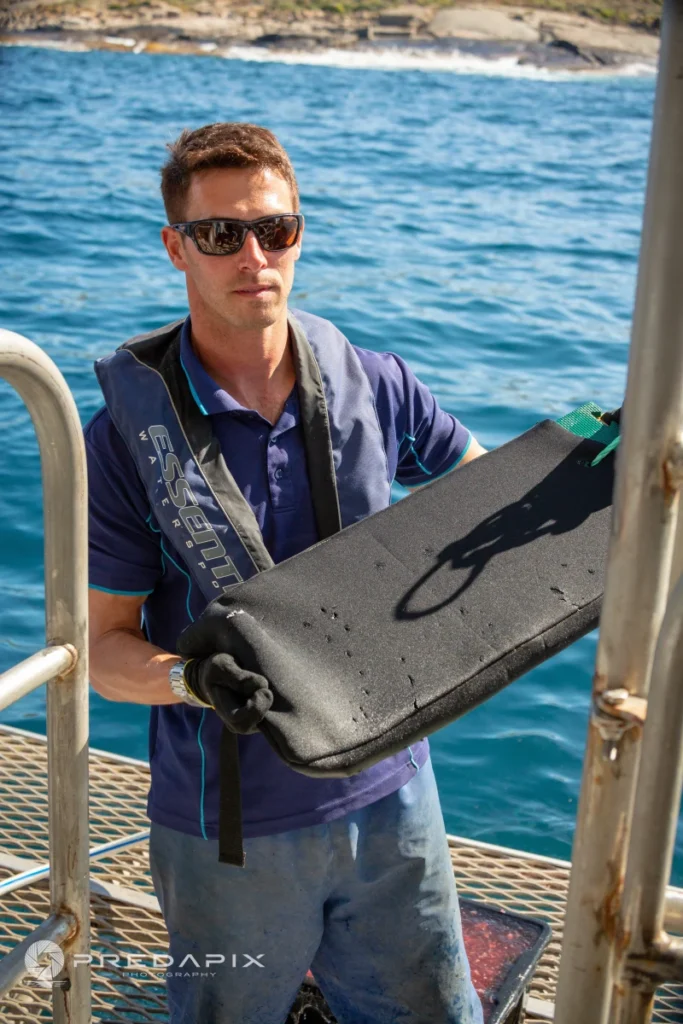PORTLAND, Maine (AP) — Australian researchers have put bite-resistant wetsuits to the test—by letting sharks sink their teeth into them—and found that the high-tech materials can help reduce injuries in rare shark encounters.
Shark bites on humans are exceptionally uncommon. The International Shark Attack File at the Florida Museum of Natural History recorded fewer than 50 unprovoked bites worldwide in 2024. Still, with large sharks increasingly spotted near coasts, swimmers, surfers, and divers are looking for extra protection.
Scientists from Flinders University in Adelaide trialed four new wetsuit materials by towing samples behind boats and allowing tiger and white sharks to bite them. Their study, published in Wildlife Research, showed that all four reduced damage compared with standard neoprene suits.

“Bite-resistant materials do not prevent shark bites, but they can reduce injuries,” said Charlie Huveneers, a Flinders professor and co-author of the research. The materials lessened tissue damage that could otherwise lead to severe blood loss or even limb loss.
Unlike older chainmail suits—which offered protection but little flexibility—modern designs provide both safety and mobility, making them more practical for surfers and divers. The tested materials included Aqua Armour, Shark Stop, ActionTX-S, and Brewster.
Nick Whitney, a senior scientist at Boston’s New England Aquarium who was not involved in the study, called the findings promising. He emphasized that the suits aren’t likely to encourage reckless behavior in the water.
“I like it because it’s not dependent on changing shark behavior,” Whitney said. “If you’re unlucky enough to get bitten, this material may mean you bleed less than if you were wearing a normal wetsuit.”
Researchers stress that the suits don’t remove all risks and that ocean users should still follow safety guidelines around sharks. But they hope their findings will help the public weigh whether the new gear makes sense for them.
